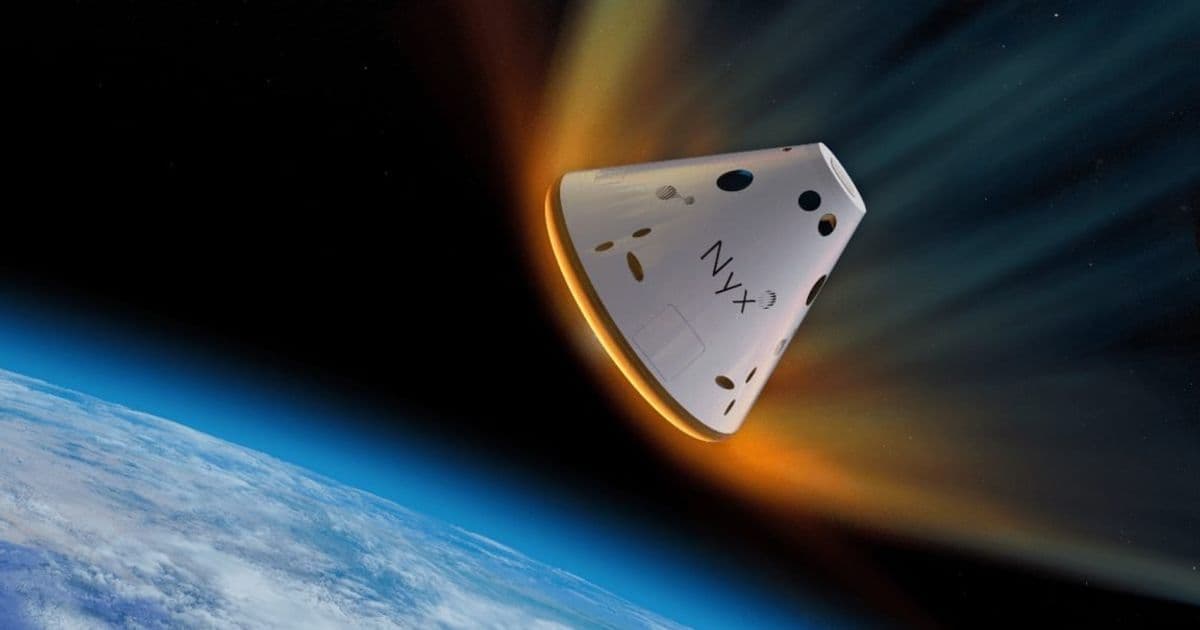The Exploration Company's spacecraft crash after reentry highlights Europe's shifting tolerance for risk as it races toward independent space access. With a cargo-capable Nyx vehicle targeting a 2028 ISS docking and geopolitical pressures accelerating crew ambitions, the startup faces high-stakes technical and funding challenges.
When The Exploration Company's 'Mission Possible' spacecraft slammed into the ocean last month after parachute failure, founder Hélène Huby braced for backlash. Instead, European space agencies delivered an unexpected verdict: crashing after completing 80% of its objectives represented progress. The sub-$25 million vehicle, developed in under three years, had successfully demonstrated controlled atmospheric reentry before its descent system faltered at 26km altitude. This response signals a profound cultural shift as Europe pursues faster, leaner space development amid urgent geopolitical pressures.
The Failure That Validated a Strategy
An independent investigation pinpointed the failure to the parachute deployment mechanism—not the parachutes themselves, supplied by Airborne Systems. Crucially, the company had skipped expensive drop tests to accelerate development and contain costs. "We made a mistake... to underestimate the risks," Huby admitted. The trade-off saved millions and a year of schedule but proved costly in hindsight. This calculated risk reflects the startup's scrappy ethos, contrasting sharply with traditional European space programs' risk-averse approaches.
Betting Big on Nyx: Cargo, Crew, and Crunch Time
Rather than rebuilding a test vehicle, The Exploration Company is pivoting directly to its operational spacecraft: Nyx. This ambitious vehicle, comparable in size to SpaceX's Dragon but designed from inception for crew capability, now targets a 2028 International Space Station docking—just two years before the station's planned retirement. Key design choices reveal its human-spaceflight aspirations:
- Quad-parachute system (overkill for cargo, essential for crew)
- NASA collaboration on requirements
- Aggressive development timeline stabilized since January 2025
"It sounds a little bit aggressive, but the team is working toward 2028," Huby stated during meetings at the company's Houston offices. Success hinges on a critical November 2025 milestone: the European Space Agency's Ministerial Council meeting in Bremen. There, member states will decide on funding for cargo vehicle development, with The Exploration Company seeking at least $200 million in a likely competitive bid.
Geopolitics Accelerates Europe's Crew Ambitions
Huby observes a "clear consequence of geopolitics": surging European support for independent crew access to space—a notion dismissed just a year ago. The urgency stems from:
- Uncertainty under a potential second Trump administration, including proposed NASA budget cuts affecting European partnerships
- Total reliance on SpaceX's Dragon for European astronaut launches
- Strategic imperative for sovereign space infrastructure
This convergence of technical ambition and political will creates a narrow window for The Exploration Company. Yet the path remains daunting. Validating Nyx's parachute system without iterative testing demands flawless engineering. Meeting the 2028 ISS deadline requires unprecedented speed in European space development. As Huby acknowledged, the Mission Possible failure offered hard-won lessons—but translating those into a successful Nyx mission will test Europe's newfound appetite for risk at the frontier of commercial spaceflight.
Source: Ars Technica

Comments
Please log in or register to join the discussion